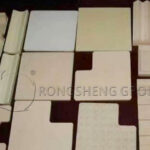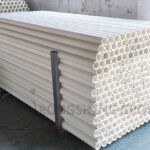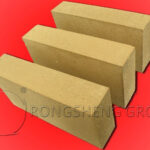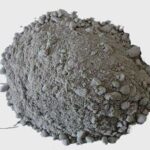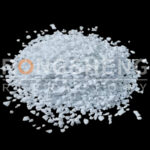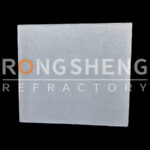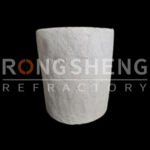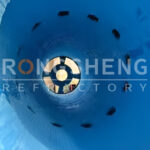Special Grade Phosphate Bricks
Special Grade Phosphate Bricks Description
Phosphate bricks have been recognized as high quality linings for cement kilns and lime kilns. Phosphate bricks include two types: one is phosphate bonded high alumina brick (referred to as phosphate brick), and the binder is phosphoric acid solution with a concentration of 42.5% ~ 50%; the other is phosphate bonded high alumina wear resistant bricks ( wear-resistant bricks), and the binder is aluminum phosphate solution prepared from industrial phosphoric acid and industrial aluminum hydroxide. Among them, phosphate brick has good chemical stability, high thermal strength and good wear resistance. It is often used at expansion port of machine shaft kiln and high temperature zone kiln lining, rotary cement kiln cooling zone and transition zone. The corrosion resistance of wear-resistant bricks is better than that of phosphate bricks. It is commonly used in areas of machine shaft kiln where abrasion is severe, as well as cooling machine an and kiln preheating parts of the rotary kiln.
Special grade high alumina bricks contain zirconium, their thermal shock stability and anti-stripping property are good, Special grade phosphate brick is developed and produced in recent years. Special grade phosphate brick is made from phosphate solution binder with a concentration of 42.5%~50%, alumina clinker aggregate calcined above 1600 °C in rotary kiln. During the application of the special grade phosphate brick, the phosphoric acid and the calcined bauxite fine powder react with the refractory clay to form a bond mainly composed of cristobalite-type orthophosphate.
Special Grade Phosphate Bricks Characteristics
High normal temperature compressive strength, good thermal shock stability, high Refractoriness under load temperature, accurate dimensions, large bulk density and good wear resistance.
Special phosphate brick has the advantages of ordinary phosphate brick: high normal temperature compressive strength, good wear resistance, refractoriness under load temperature is basically equivalent to semi-direct combined magnesia chrome brick, superior to anti-spalling high alumina brick, and has good thermal shock stability.
For transition zone with large temperature fluctuation, special grade phosphate bricks have obvious performance advantages: high temperature strength and strong resistance to thermal stress and mechanical stress in the kiln, excellent adaptation to cylinder body ellipticity changes at wheel belt parts.
Secial grade phosphate brick has higher bulk density and lower permeability, which greatly improves its thermodynamic performance and chemical corrosion resistance. The harmful components in coal powder fluctuate greatly, especially the SO3 component is high and unstable. Special grade phosphate brick is almost neutral and not sensitive to alkali corrosion, so it is more suitable for the transition zone where lining coating is frequently sprayed and damaged.
Special Grade Phosphate Bricks Physiochemical Index
| Item | Special grade phosphate brick | Phosphate composite bricks | ||
| PT-1 | PT-2 | Firebricks | Lightweight insulating bricks | |
| AL2O3, %≥ | 80 | 75 | 75 | 55 |
| C + SiC, % | 7.5 | 10 | ||
| Fe2O3, %≤ | 1.8 | 1.65 | 2 | 1.5 |
| Refractoriness ℃≥ | 1790 | 1790 | 1770 | 1670 |
| Bulk density g/cm3≥ | 2.75 | 2.8 | 2.7 | 1 |
| Apparent porosity %,≤ | 21 | 20 | ||
| CCS,Mpa≥ | 75 | 85 | 65 | 5.5 |
| RUL(0.2Mpa) ≥ | 1520℃ | 1530℃ | 1350℃ | |
| PLC %(1500℃, 2h)≤ | 0.1~-0.4 | 0.1~-0.3 | ||
| Thermal conductivity W/m·k(350℃)≤ | 1.84 | 0.45 | ||
| Thermal shock resistance(1100℃, water cooling)≥ | 30 | 35 | ||
Special Grade Phosphate Bricks Applications
Special grade phosphate bricks are suitable for transition zone kiln mouth of rotary kiln and other parts that firebricks are easy to fall off, and are suitable for sintering zone. The use of special phosphate bricks in the transition zone, the service life of the bricks is basically matched with the magnesia chrome bricks. Special grade phosphate bricks are also used in mechanical shaft kiln, lime kiln, carbon industry rotary kiln and so on.
